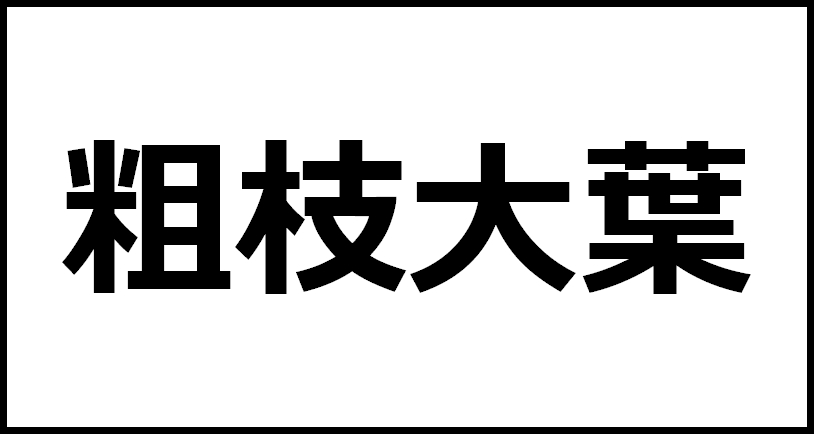粗枝大葉について。四字熟語の粗枝大葉の読み方や意味、英語や外国語での意味をまとめました。
粗枝大葉について
粗枝大葉の読み方・意味
| 四字熟語 | 粗枝大葉 |
| 読み方 | そしたいよう |
| カタカナ読み | ソシタイヨウ |
| ローマ字読み | soshitaiyo |
| 読みの文字数 | 6文字読みの四字熟語 |
| 頭文字 | 「そ」から始まる四字熟語 |
| 構成する文字 | ・大 ・枝 ・粗 ・葉 |
| 意味 | まばらな枝と大きな葉。文章を書くのに、細かな規則にとらわれないで、伸び伸びと筆をふるうことのたとえ。麁枝とも書く。 |
粗枝大葉の意味(外国語)
粗枝大葉の外国語での意味をまとめました。
| 英語 | Sparse branches and large leaves. This is an example of writing a sentence without being bound by detailed rules, and brushing freely. Also written as 麁ED. |
| スペイン語 | Ramas escasas y hojas grandes. Este es un ejemplo de cómo escribir una oración sin estar sujeto a reglas detalladas y cepillarse libremente. También escrito como 麁ED. |
| イタリア語 | Rami radi e foglie grandi. Questo è un esempio di come scrivere una frase senza essere vincolati da regole dettagliate e spazzolare liberamente. Scritto anche come 麁ED. |
| ポルトガル語 | Ramos esparsos e folhas grandes. Este é um exemplo de como escrever uma frase sem estar vinculado a regras detalhadas e escovar livremente. Também escrito como 麁ED. |
| フランス語 | Rami radi e foglie grandi. Questo è un esempio di come scrivere una frase senza essere vincolati da regole dettagliate e spazzolare liberamente. Scritto anche come 麁ED. |
| 中国語 | 稀枝大叶。 这是一个不受细则束缚,随意刷写句子的例子。 亦作麁ED。 |
| 韓国語 | 드문 분기와 큰 잎. 문장을 쓰는데, 섬세한 규칙에 얽매이지 말고, 늘어나고 붓을 체는 것의 비유. 邁枝도 쓴다. |


